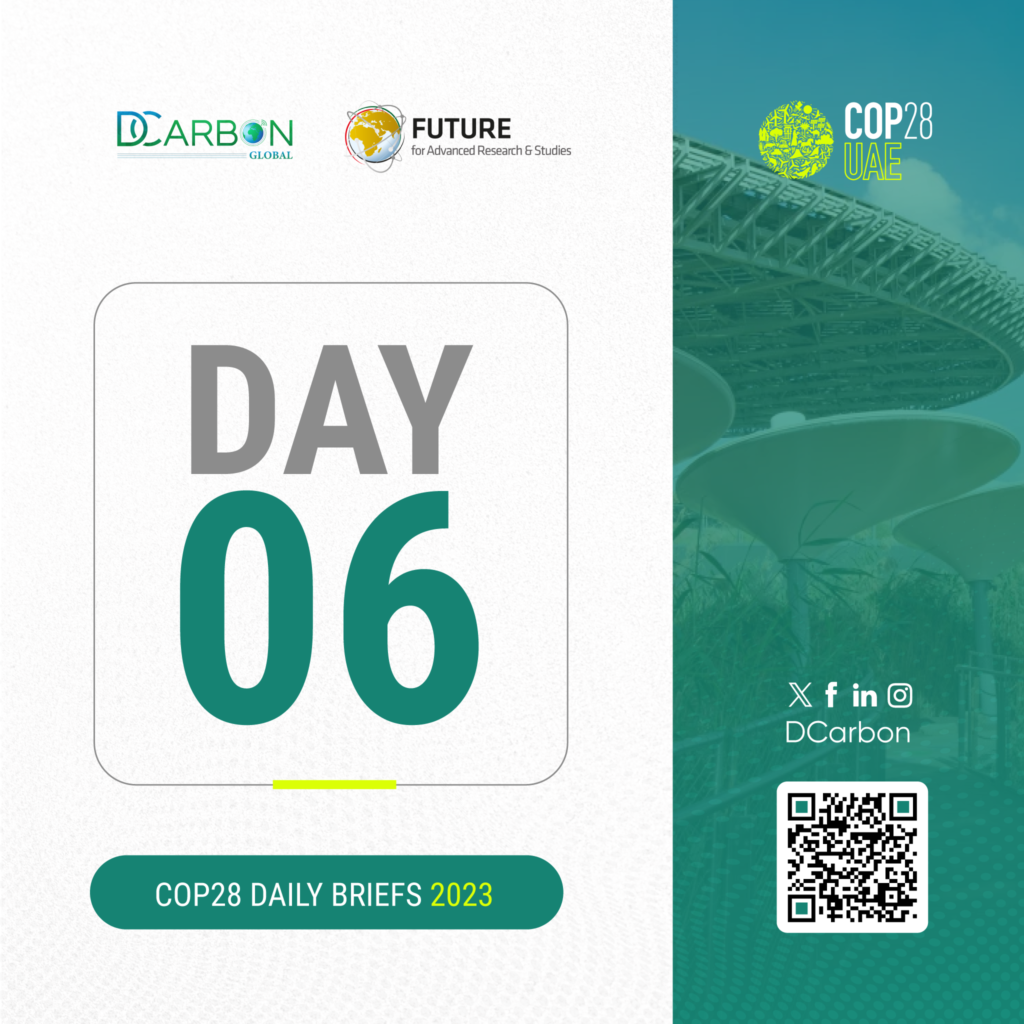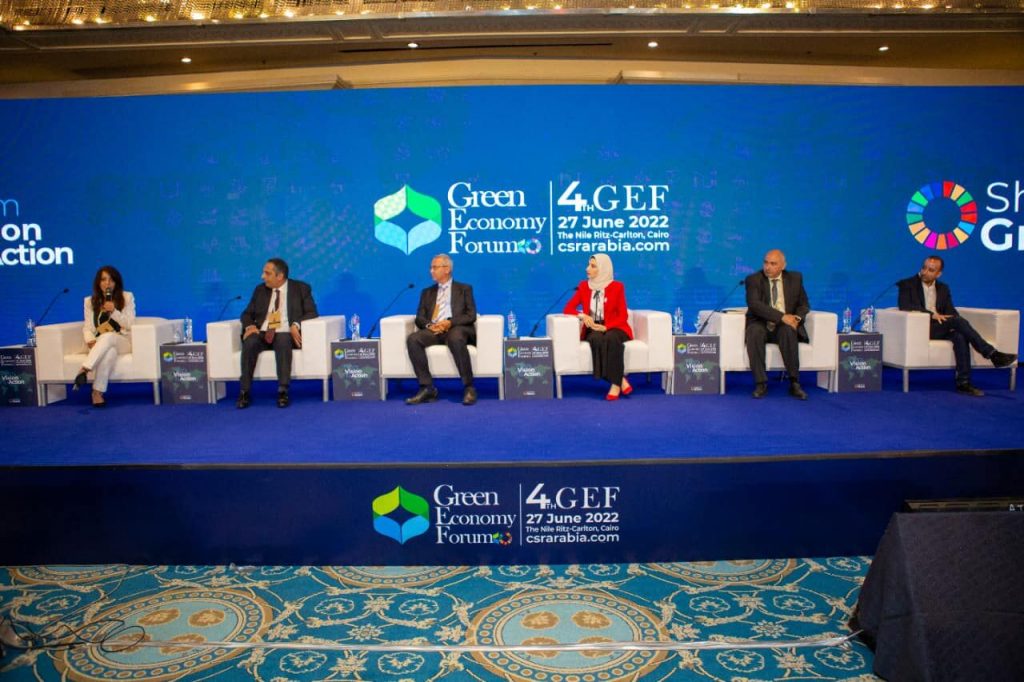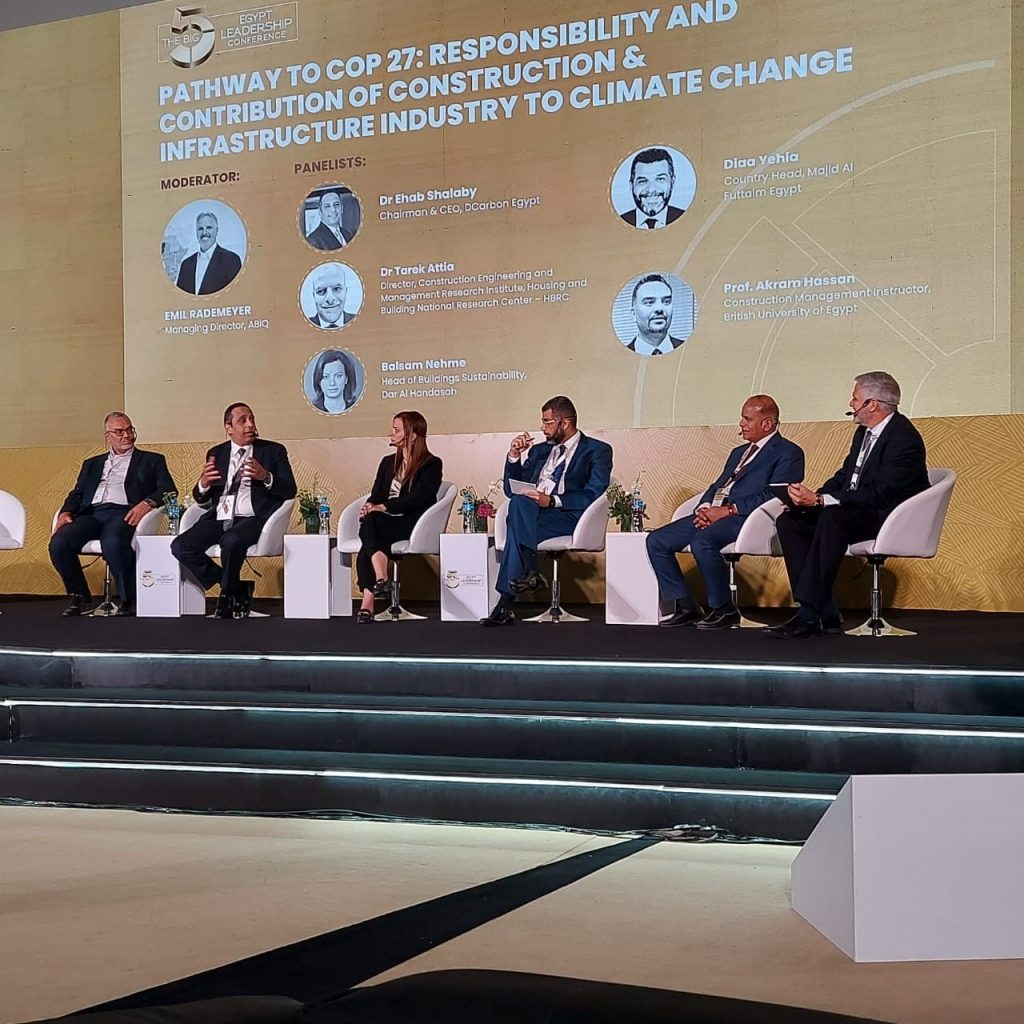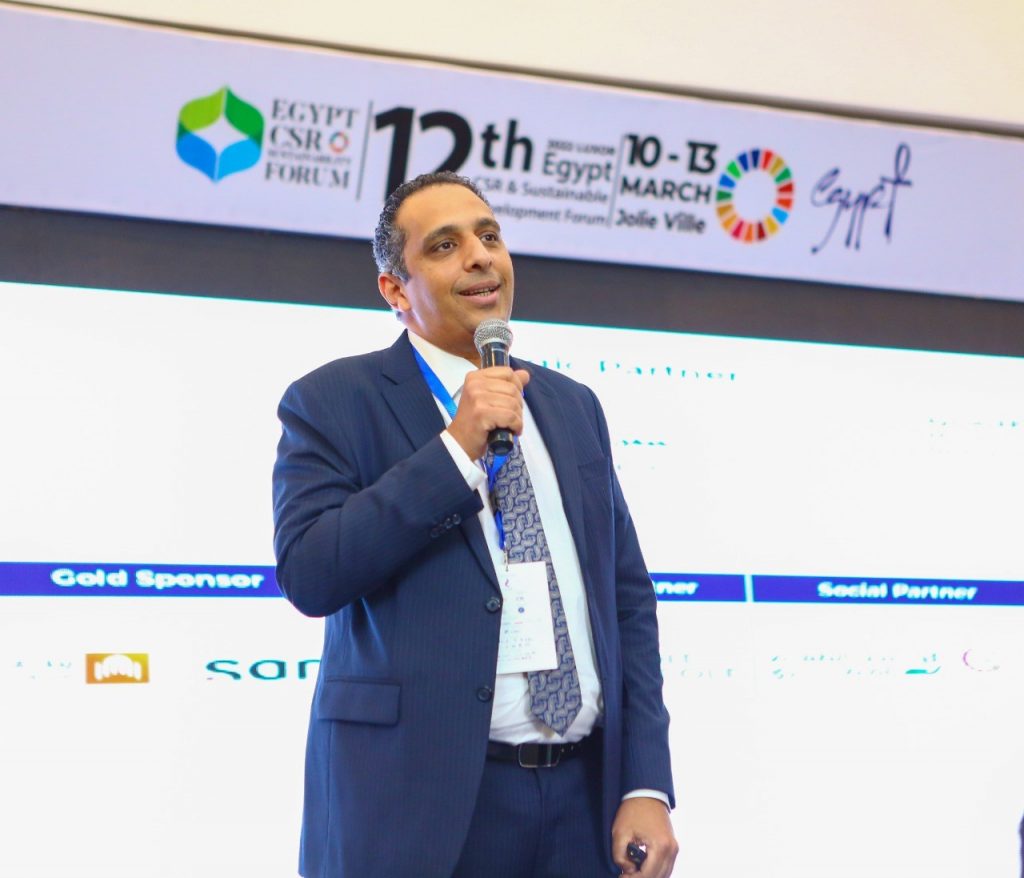Blue Zone
Indigenous Peoples Day at COP28
Day six main theme is ‘Indigenous Peoples’. The main events addressed the key role indigenous people play in finding climate solutions based on the experience to adapting to challenges for centuries. Their ability to develop strategies for resilience in changing environments that can strengthen current adaptation efforts formulate out of the box paths and lessons for the future.
“Indigenous Peoples are on the frontlines of the climate crisis. They are well placed to lead just transitions based on their time-honored values, knowledge, and world-views,” said UN Climate Change Executive Secretary Simon Stiell.
The roundtable with indigenous youth and youth from local communities presented recommendations on the meaningful participation of Indigenous Peoples in climate policies and action.
Two flagship climate reports in the spotlight today
UN Environment Programme (UNEP) hosted two back-to-back events at COP28 to introduce two flagship reports recently released: the Adaptation Gap Report and the Emissions Gap report. The Adaptation Gap Report addresses the progress on climate adaptation and the need to accelerate the pace of implementation to increase resilience to the rising climate change impacts. While the Emissions Gap Report illustrates how the world is heading toward a temperature rise far beyond the Paris Agreement goals, and that global efforts need to be more than what countries have promised.
Global Stocktake moves closer to a conclusion at COP28
During the conference’s first week, world leaders shared their views and expectations for the global stocktake’s outcome during a series of roundtables. A series of high-level events is supporting the move toward the world’s first global stocktake that aims to increase ambition and accelerate action on climate change by informing the next round of climate action plans due in 2025. Governments will take a decision on the global stocktake at COP28, which can be leveraged to raise ambition and action in this decade.
Harry Vreuls, Chair of the Subsidiary Body for Scientific and Technological Advice stated in his opening remarks that “The high-level events are a space for leaders to provide recommendations for strengthening action and enhancing support, in the context of the urgent need to act in this critical decade as impacts of climate change worsen around the world,”
Climate finance is a key enabler of climate action
Climate finance is extremely important for developing countries, which are disproportionately affected by the impacts of climate change. A report released Monday estimated that emerging markets and developing countries will need $2.4 trillion a year in investment to cap emissions and adapt to climate change.
Several funding announcements have poured in during the first week of COP28. For example, eight donor governments announced new commitments to the Least Developed Countries Fund and Special Climate Change Fund totaling $174.2 million. The Adaptation Fund has also mobilized nearly $160 Million in new pledges at COP28 for the most climate-vulnerable. And more than $650 million has been pledged for the Loss and Damage Fund.
Egypt’s Urgent Call: Mitigating Climate Change Impacts and Addressing Financial Gaps
During the first Global Stock Take (GST), Egyptian Environment Minister Yasmine Fouad emphasized the critical need for international support and action to address the impact of climate change. Minister Fouad highlighted the significant financial gaps, especially for developing countries, stating that they need $160 billion annually to adapt to climate change, far surpassing the current available funds of $22 billion. She urged a concerted effort to bridge this gap, acknowledging the pressing challenges faced by developing nations in managing and curbing climate change impacts across various development domains.
Transport-Energy Nexus to Deliver Climate Goals and A Just Transition
Aligned with the slogan of the COP28 Presidency, “Unite, Act, Deliver”, the transport and energy ministerial roundtable serves as a moment to “unite” two key sectors, and proceed with a strategic discussion on how to “act” together to “deliver” climate goals and leverage the benefits of an aligned transport and just energy transition.
“Many technical solutions and policy levers to address climate change sit at the nexus between energy supply and transport sectors. It is essential that there is strong collaboration between these sectors to align policies, overcome shared challenges, and forge coalitions to decarbonize both sectors in tandem. Reducing emissions from transport (23% of global CO2 emissions) implies a rapid shift from fossil energy to electricity and low-emission fuels, which will have a significant impact on global energy demand and supply chains.” International Energy Agency, IEA.
“Our goal is to double the share of rail mode, by 2035, going from 17% to 35%. The government under President Lula’s leadership recognizes the global climate challenges and is fully committed to playing a significant role in the fight against global warming.” Said Leonardo Cezar Ribeiro, Secretário Nacional de Transporte Ferroviário, Brazil.
Towards Net-Zero Emissions: A Scientific Perspective on Climate Policies
COP28 hosted an event exploring pathways to support the implementation of climate policies for the post-2030 period, consistent with the Paris Agreement and net-zero targets. The discussion flagged justice and equity perspectives in relation to net-zero ambitions, highlighting the crucial role of transparency systems in tracking progress toward achieving NDCs. Panelists addressed the role of research in facilitating progress and emphasized the significance of transparency systems in raising global climate ambition, implementing NDCs, and fostering accountability among Parties and non-Party actors.
Enhanced GEF Support: Streamlining Funding for Transparency at COP28
Addressing the challenges in accessing Global Environment Facility (GEF) funding, this COP28 session outlined streamlined processes and collaborations to expedite funding requests for national reports under the Convention and the Paris Agreement. The GEF has been proactive in streamlining application processes, revising templates, and allowing the bundling of multiple reports. This strategic approach aims to simplify the application process, reduce transaction costs, and ensure timely access to funds for sustainable national reporting. The collaboration between recipient countries and implementing agencies remains essential for efficient support delivery and the overall success of transparency initiatives.
Cop28 Climate Innovation Forum Unites World’s Technology Leaders to Explore Cutting-Edge Climate Solutions
COP28’s Climate Innovation Forum brought together the world’s technology leaders in a series of talks exploring cutting-edge solutions to tackle the global climate crisis, including artificial intelligence (AI), satellite technology, big data, clean energy, industrial decarbonization, low-carbon hydrogen, and more.
Attendees of the Climate Innovation Forum are key leaders in the technology and sustainability fields, including His Excellency Omar Sultan Al Olama, the UAE’s Minister of State for Artificial Intelligence, Bill Gates, Arvind Krishna, the CEO of IBM, Kate Brandt, Chief Sustainability Officer of Google. Elizabeth Gaines, Non-Executive Director and Global Green Ambassador at Fortescue Metals. Brad Smith, Vice Chair and President at Microsoft along with several innovative startups from Breakthrough Energy Ventures.
His Excellency Omar Sultan Al Olama said: “We are confronted with two distinct paths—one of hope and opportunity and the other in potential catastrophe. The potential for a technological revolution underpinned by environmental responsibility could lead us to a carbon-neutral future, reshaping our utilization of Earth’s resources to achieve progress and preservation simultaneously.”
Kate Brandt, Google’s Chief Sustainability Officer then spoke about moonshot thinking for climate action and highlighted an example where AI is currently being piloted with the Chilean government for grid management.
Bill Gates, Founder of Breakthrough Energy and Co-Chair of the Bill and Melinda Gates Foundation, closed the event with a fireside discussion alongside Eric Toone, Chief Technology Officer, Breakthrough Energy & Managing Partner, Breakthrough Energy Ventures and Amy Harder, Executive Editor of Cipher. During the session, they discussed the opportunities for scaling climate solution with Bill Gates saying: “Bringing down the green premium is key for the widespread adoption of climate technologies”.
Green Zone
25 leading utility companies from across the globe join forces with IRENA and the UN Climate Change High-Level Champions to launch Utilities for Net Zero Alliance
Forming the Utilities for Net Zero Alliance (UNEZA) in collaboration with the International Renewable Energy Agency (IRENA), Global industry giants, regional utilities, developers, and power system technology leaders from across the world doubled down their support for the energy transition at COP28 in Dubai, aligning a significant share of the global electricity community with the COP28 Action Agenda objective of fast-tracking a just and orderly energy transition.
UNEZA will develop a plan of action to mitigate macro energy transition challenges including Capital mobilization, Supply chain de-risking, Capabilities and talent building, and Facilitating policy and regulatory support
H.E. Razan Al Mubarak, UN Climate Change High-Level Champion for COP28, said: “Utilities play a crucial role in delivering mitigation measures that align global development with a net zero future and are central to a future energy system that is in harmony with nature and the environment. At the same time, utilities can help deliver a more just and inclusive energy future for all, improving access to energy, reducing inequalities, and strengthening climate resilience and adaptive capacity. The High-Level Champions are proud to partner with IRENA. TAQA and the founding members of Utilities for Net Zero Alliance to deliver ambitious decarbonization efforts and increase the resilience of the energy system. We look forward to working on the design and delivery of the action plan during COP28 and beyond and invite utilities worldwide to join this community and demonstrate a commitment to action.”
IRENA Director-General, Francesco La Camera said: “IRENA’s World Energy Transitions Outlook makes it clear that tripling renewable power capacity by 2030 is the most realistic way to keep 1.5°C alive. To accelerate the deployment of renewables, we need concerted action to overcome existing infrastructure barriers through the modernization and upgrade of power grids, as well as transmission and distribution lines that enable the fast electrification of the system. The utilities sector is at the front line of this modernization. Utilities will have to significantly invest and leverage collaboration to ensure interconnectivity, flexibility, and balancing of the distribution system in pursuit of Paris Agreement climate goals. Without a doubt, there is a pressing need to reshape the global financial landscape for infrastructure investment overall. A significant increase in funding from multilateral development banks and the leverage of private finance will be imperative to build the infrastructure of the new energy system that runs on renewables.”
Jasim Husain Thabet, TAQA’s Group Chief Executive Officer and Managing Director, said: “Utilities are on the frontlines of global energy sector transformation, and as such we recognize the responsibility we hold to lead our respective national climate action agendas. This global initiative responds to the COP28 action agenda and demonstrates a determination from the sector to accelerate the energy transition through collaboration, partnership, and a clear focus on addressing the current challenges.”
Cross-Industry Collaboration and Sustainability Transition in Hard-to-Abate Sectors
Organized by the global consulting Roland Berger in partnership with Siemens Energy, the panel will discuss with high-level representatives from the process industry current insights into their transformation paths, including challenges in the field of technology – and how different industries can join forces in the field of green hydrogen supply and the development of a carbon capture infrastructure.
Empowering The Next Generation: Youth at The Forefront of Sustainability
Youth empowerment in sustainability is a prominent and dynamic force driving transformative change. With a commitment to addressing the urgent challenges posed by climate change, COP 28 recognises the indispensable role of the younger generation in shaping a sustainable future and achieving a just energy transition. The conference is to set the stage for a profound exploration of how empowering youth to actively participate in environmental initiatives, climate action and finance, and sustainable development not only cultivates future leaders but amplifies the impact of global efforts to safeguard our planet.
The Key Discussion Points include Leadership Approach, Innovative Initiatives by Young Leaders, Role of Global South Youth in Sustainability, Opportunities for Young Job-Seekers, and Challenges and Constraints.
This discussion places youth at the forefront, acknowledging their innovative spirit, passion, and commitment as catalysts for a more sustainable and resilient world. As the international community unites to deliberate on climate policies and actions, the spotlight is unequivocally on fostering a legacy of environmental stewardship through the empowerment of youth, creating economic opportunities for young people through the energy transition, and ensuring climate finance is future-focused and inclusive.
Decarbonising Heavy Emitting Industry
In its press release, IRENA discussed the outcome of the Discussion Pannel that toke place on the six-day events. Where Alliance for Industry Decarbonization (AFID) held a roundtable at COP28 and committed to raising decarbonization ambitions through tangible achievements by 2030. The objective of AFID is to facilitate dialogue on industry level and increase cooperation to help companies to develop solid decarbonization strategies and implementation plans, aligned with their countries’ Paris Agreement net-zero and decarbonization ambitions.
CEOs of over 60 Industry Partners Step-up Efforts to Combat Climate Change Through Ioint Targets in Renewables, Green Energy Technologies, Human Skills, and Finance, and stated that their individual reduction plans when combined aim to reduce 51% of direct and indirect greenhouse gas (GHG) emissions and grow the installed renewable capacity from 84 gigawatts (GW) today to 187 GW in 2030.
Moreover, Alliance members also commit to almost double installed green hydrogen, drive green energy solutions, increase workforce re-skilling from currently 15% to 91% and significantly boost investments in energy transition projects to more than USD 50 billion by the end of this decade.
Francesco La Camera, Director-General of IRENA, said: “The Paris Agreement provides us with a clear direction, and science has underscored the milestones we must reach by 2030. Now, our challenge lies in translating these overarching goals into tangible, actionable steps. COP28 is the ‘COP of Action’, and this Alliance stands for bold and visionary commitments of the global industry to act on decarbonisation.”
As co-chair of the Alliance, Christian Bruch, President and Chief Executive Officer of Siemens Energy, said: “There is no alternative to the energy transition – we need to act together. Partnership promotes progress, and taking this commitment together is an important step. There are no reasons or excuses to wait for action. All technologies needed are available and it is clear that without major changes global warming will increase more than 3°C.”
Co-chair of the Alliance, Thachat Viswanath Narendran, CEO & Managing Director of Tata Steel, said: “The palpable impact of climate change has made the case for concerted and swift action by the industrial sector stronger. By prioritizing and strengthening the efforts on decarbonisation, AFID is sending out a clear message on both the future we want to build for the planet, and the needed urgency. I thank all the fellow members of the Alliance for the unanimous decision to join hands in our collective pursuit of a better tomorrow.”
Climate Action Innovation Zone
During the 4th and the 5th of Dec., the climate Action Innovation Zone is hosting “The Sustainable Innovation Forum 2023” featuring an impact driven agenda. A variety of high-level debates, engaging dialogues, and knowledge sharing sessions. With a focus on “From ambition to transformative climate action,” the agenda delved into strategies and innovations that enable all stakeholders to move at speed and scale to accelerate the transition towards a nature positive, net zero and equitable global economy. On Dec. 5th, the following events were organized:
Mobilizing Investment for a Net Zero Nature Positive Equitable Global Economy
The core of the discussion revolved around the current fragmented financial system, the required transformational change and innovation to drive private and public capital towards nature positive climate action. The following questions were addressed to provide a pathway for investment mobilization. What will it take to build the investment pipeline at scale to deliver our net zero, nature-positive targets? How can we make green solutions cost competitive? What financial products and mechanisms will enable us to achieve our climate and nature targets? How can governments transition their economies to align with their net zero policy ambitions? How can the private and public sectors Install confidence for investors in sustainable investment products?
Implementing Resilient Carbon Markets on a Global Scale
Carbon Markets, regulatory and voluntary, are up-front-and-center as a driver toward green transitioning journey. Both play a crucial role in incentivizing emissions reductions. However, scalability and effectiveness challenges still exist toward full-fledged implementation. Using effective standardization and certification, issues such as volatility in voluntary markets, reinforcing integrity in all carbon markets using measurement, reporting and verification (MRV) acceptable frameworks, will optimize and strengthen digital technology unlock the potential of carbon markets, and how can we reduce uncertainty and fragmentation across all carbon markets. All these issues and more are discussed during the panel.
Financing Climate Action in the Global South
The panel will shed light on the role of climate finance and required actions as a critical enabler of climate action. Green finance must be made readily available and accessible to all. Delivering the old promises while developing a new framework going forward. Systematic change must be witnessed to see climate finance effectively deployed in the global south. De-risk and leverage green finance to the global south to make key climate solutions accessible and available to all is a perquisite. How can we deliver successful green finance initiatives at the local and regional level, taking into account local communities, What must be done to protect communities from loss and damages.
How Technology Can Enable a Sustainable Future: Sophia Mendelsohn, Chief Sustainability Officer Sap
The Sustainable Innovation Forum panel “How technology can enable a sustainable future” Sophia Mendelsohn, Chief Sustainability Officer SAP, held a speech for the SAP. SAP is actively participating in COP28 and advocating for ambitious policy action and the adoption of technology to enhance corporate sustainability management. The company aims to help organize supply chains, transportation, and financial data to facilitate a circular and net-zero economy. A recent SAP study highlights the advantages for businesses that proactively integrate sustainability into their strategies, surpassing those that merely respond to external pressures. SAP’s solutions streamline data collection, enable comprehensive analysis, share standardized data, and seamlessly integrate sustainability measures into core business processes. This transparency and integration empower businesses to navigate regulatory landscapes and make informed, sustainable decisions across their entire value chain. SAP’s strategic priorities include managing carbon, fostering collaborative supply chain ecosystems, and supporting local initiatives to combat climate change and societal challenges. The company collaborates with a diverse set of partners, including The World Business Council for Sustainable Development (WBCSD), The International Chamber of Commerce (ICC), and We Mean Business (WMB).
In the context of COP28, SAP sees an opportunity for governments to implement a balanced approach to addressing climate challenges, combining mitigation and adaptation with crucial technological support. The company expresses hope for ambitious and impactful outcomes that signal the urgency and scale required to meet the goals of the Paris Agreement for the well-being of people and the planet.
APM Terminals and DP World Unite to Form ZEPA at COP28
APM Terminals and DP World have jointly announced the formation of the Zero Emission Port Alliance (ZEPA) during COP28. This strategic coalition aims to expedite the transition to zero emissions for container handling equipment (CHE) at ports. ZEPA will focus on promoting the industry-wide adoption of battery-electric CHE to drive emissions reductions across ports. The initiative is based on research outlined in a white paper commissioned by APM Terminals and DP World in October 2023. The research indicates that battery-electric container handling equipment (BE-CHE) can become as or more competitive than diesel CHE as it becomes more affordable, attractive, and accessible. This transition could happen in the next 2-8 years through concerted collective efforts across the entire port ecosystem.
The Greater4H Hydrogen Northern Europe Infrastructure Project Presented Its Plans at COP28 in Dubai.
The project, backed by €12.4 million in EU funding (30%), is developing up to 14 hydrogen refueling stations in northern Europe, from Oslo to Hamburg. Two stations in Norway, privately financed, are already operational. Germany, Denmark, and Sweden will each have four stations. Launched in October 2022, the project aims to address the lack of alternative fuel infrastructure for heavy-duty vehicles with hydrogen technology. The initiative targets “white spots” in the alternative fuel infrastructure to support increased market share for green hydrogen. Hynion, Everfuel, and GP Joule are producing hydrogen in collaboration with various regional public entities. The stations are expected to be operational by 2026, though market delays have been noted. Challenges include a limited number of hydrogen trucks on the road and supply constraints, leading to distances of up to 150 km between refueling stations. Marie Floystad Dahl, a consultant for the project, highlighted the lack of hydrogen trucks and the need for streamlining regulations. The project faces challenges in securing land and signing contracts, with ongoing political efforts in Brussels and collaboration with other refueling projects. The initiative is part of the STRING megaregion, and the team is working to expand the corridor beyond its core markets. The project aims to explore global partnerships at COP28 and assess its positioning on a global stage.
Smarter and Cleaner Cities for the Future
On the 5th December at the Sustainable Innovation Forum panel “Smarter, Cleaner Cities for the Future,” Andy Cohen, co-CEO of Gensler, Kristen Siemen, General Motors’ chief sustainability officer, and Rogier van den Berg, who leads the World Resources Institute’s sustainable urban development work, joined a discussion on the sustainable future of cities and mobility.
References
Global Stocktake Moves Closer to a Conclusion at COP28 | UNFCCC
COP 28 blog | UNFCCC
COP28 Climate Innovation Forum unites world’s technology leaders to explore cutting-edge climate solutions
IEA at COP28: Transport-energy nexus to deliver climate goals – Event – IEA
(18) Leonardo Cezar Ribeiro | LinkedIn
Egypt’s role in mitigating climate change impacts from COP27 to COP28-SIS
https://unfccc.int/event/a-transparency-ghg-mi-alumni-celebration-event
https://unfccc.int/event/decarbonization-ministerial-panel
https://unfccc.int/transparency-calendar https://www.gensler.com/blog/cop28-
Global Power Utilities Declare Joint Action Plan to Drive Energy Transition at COP28 (irena.org)Home (ft.com)
ADRA Advocates for Comprehensive Climate Solutions at COP28 in Dubai | Adventist Review
Members of Alliance for Industry Decarbonization Commit to Cut Emissions by Over 50% by 2030 (irena.org)
engage.climateaction.org/widget/event/climate-action-innovation-zone-2023/planning/UGxhbm5pbmdfMTcyNTcxNQ==
engage.climateaction.org/widget/event/climate-action-innovation-zone-2023/planning/UGxhbm5pbmdfMTcyNTcwMQ==
engage.climateaction.org/widget/event/climate-action-innovation-zone-2023/planning/UGxhbm5pbmdfMTcyNTcwMA== leading-the-way-to-smarter-greener-citieshttps://www.climateaction.org/news/in-case-you-missed-it-day-2-COP28https://events.climateaction.org/sustainable-innovation-forum/agenda/https://www.investorsobserver.com/news/qm-pr/8914895791580956https://www.h2-view.com/story/greater4h-outlines-roll-out-plans-at-cop28/2103196.article/https://safety4sea.com/apm-terminals-and-dp-world-unite-to-form-zepa-at-cop28/





